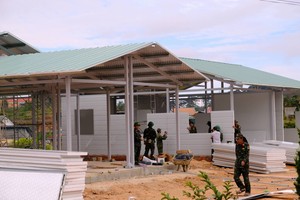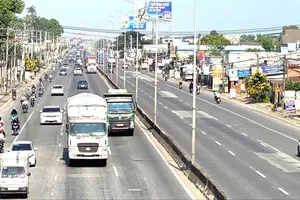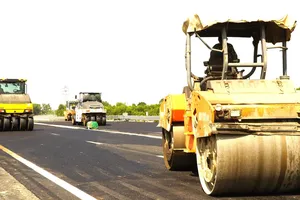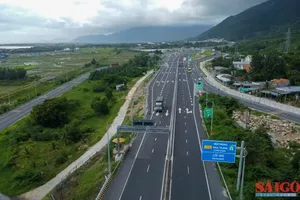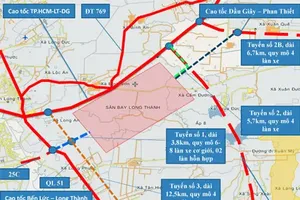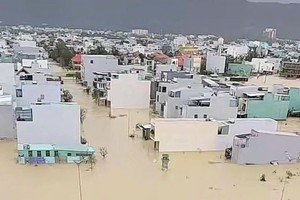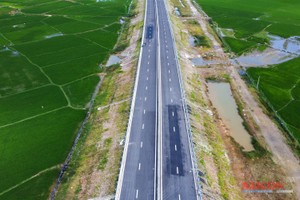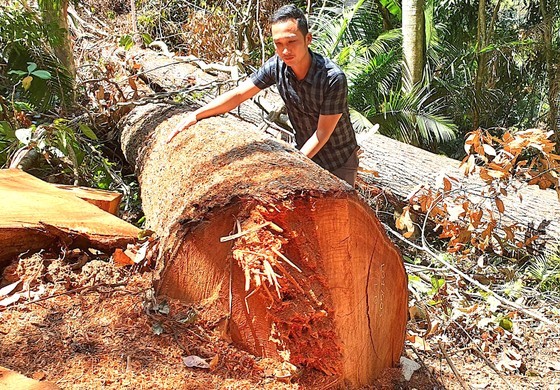
Da Lat City in Lam Dong Province was once famous for its beautiful green pine forests. They are no more the symbol of Da Lat City nowadays. Illegal loggers continuously fell trees despite warnings from forest rangers. Recently, rangers in the pine forest of Zone 122 in Da Chais Commune of Lac Duong District have had to call for help from journalists for fear that the situation is out of control. When all coming to the site, pine trees on a surface area of 1ha were all felled, and illegal loggers were nowhere to be seen.
Director of Lam Dong Province Department of Agriculture and Rural Development Nguyen Van Son reported that illegal logging and tree destroying are happening in Da Lat City and the districts of Bao Lam, Dam Rong, Lam Ha, Duc Trong, Lac Duong. Since it takes a long time to detect tree poisoning, the investigation is extremely challenging.
Similarly, in Zone 205, 213, and 222 of Ia To Mot Commune of Ea Sup District in Dak Lak Province, functional agencies have recorded the illegal destruction a forest area of 400ha. Many residents blatantly use these lots for crop growing.
Zone 1391 of Dak Phoi Commune in Lak District of Dak Lak Province is experiencing the same situation. Many mountain tops are now revealing barren soil. “Just since February, 63ha of forest land of Zone 139, 1392 has been encroached”, said Director of Tan Mai Group JSC., which is in charge of managing the forests here.
Zone 486 of Mang Den Town in Kon Plong District of Kon Tum Province is the infamous hot spot of illegal logging. After investigation, the police have prosecuted 7 illegal loggers. In the area under the management of Ia Hdrai Forestry One-member Co. Ltd., from 2918-2020, 34 violations were discovered, and over 941m3 of wood were collected. Certain forest areas within the responsibility of this organization now only appear in documents.
Statistics of the Forest Protection Department of Region IV (in charge of protecting forests in 11 provinces of the Central Highlands and South Central) display that in the first 11 months of 2021, in 5 provinces of the Central Highland, there were over 1,500 cases of illegal forest exploitation to damage an area of 363ha. The figures are 77 cases on 124ha for the first quarter this year.
It seems that the land selling fever in the past few years is one of the main reasons for illegal deforestation at the helplessness of forest owners and rangers.
Director of Agri Lak Co. Le Ba Phuc Sinh shared that his company cooperated with Lak Forestry One-member Co. Ltd. to grow 57ha of rubber and acacia trees in 2012 in Dak Nue Commune of Lak District. Almost of that area has turned to coffee crops now. The reason is after 4 years planting forest trees, tens of minority ethnic households here requested the land back to sell for living expenses. Having used up all of that money, they continue to encroach natural forest land.
Chairman of Ia To Mot Commune People’s Committee Nguyen Cong Tao reported that violators are mostly local inhabitants, some of whom used to be in charge of forest protection. When aware that a certain business is investigating the land for possible projects, they immediately destroy parts of related forests to grow crop so that they could ask for compensation from the project investors later.
Another reason why forests are so easily destroyed is due to irresponsibility of rangers there. Some even work for illegal loggers. Particularly, since 2020, 14 rangers from local forestry companies and state agencies have been detected and prosecuted for their irresponsible actions leading to deforestation. 2 rangers admitted receiving VND35 million (US$1,500) to allow illegal loggers to fell trees.
Dr. Phan Viet Ha from the Western Highlands Agriculture & Forestry Science Institute (WASI) commented that forests in the Central Highlands play a key role in biodiversity and water source protection, climate regulation not only for the area but also for Central coastal provinces. Therefore, he proposed that functional agencies must immediately apply practical measures to nurture and protect these precious forests as well as stopping the transform of land use from forest to other purposes.
Citizens are mobilized to report to functional agencies whenever they discover a case of illegal logging, said Deputy Director of Gia Lai Province Department of Agriculture and Rural Development Nguyen Van Hoan. He added that the origin of forest products in processing businesses must be more strictly managed, while the number of forest rangers must be increased for better patrol tasks.
Agreeing with that, Vice Chairman of Kon Tum Province People’s Committee Nguyen Huu Thap promised in the upcoming time, the province will accelerate the assignment of forest growing or leasing to investors so that these people share the protection responsibility. The investigation on violation cases must also be sped up for prosecution of criminals as a warning to the public.
Finally, Deputy Dean of the Faculty of Agriculture and Forestry in Tay Nguyen University Le Dinh Nam suggested a special mechanism for forest rangers so that their salary is stable and sufficient for their living expense. This will make them at ease performing their duty of forest protection. The localities in the Central Highlands should be more resolute in retrieving encroached land lots for large forest tree growing to as these are more valuable in soil maintenance, water protection, and biodiversity boosting.
